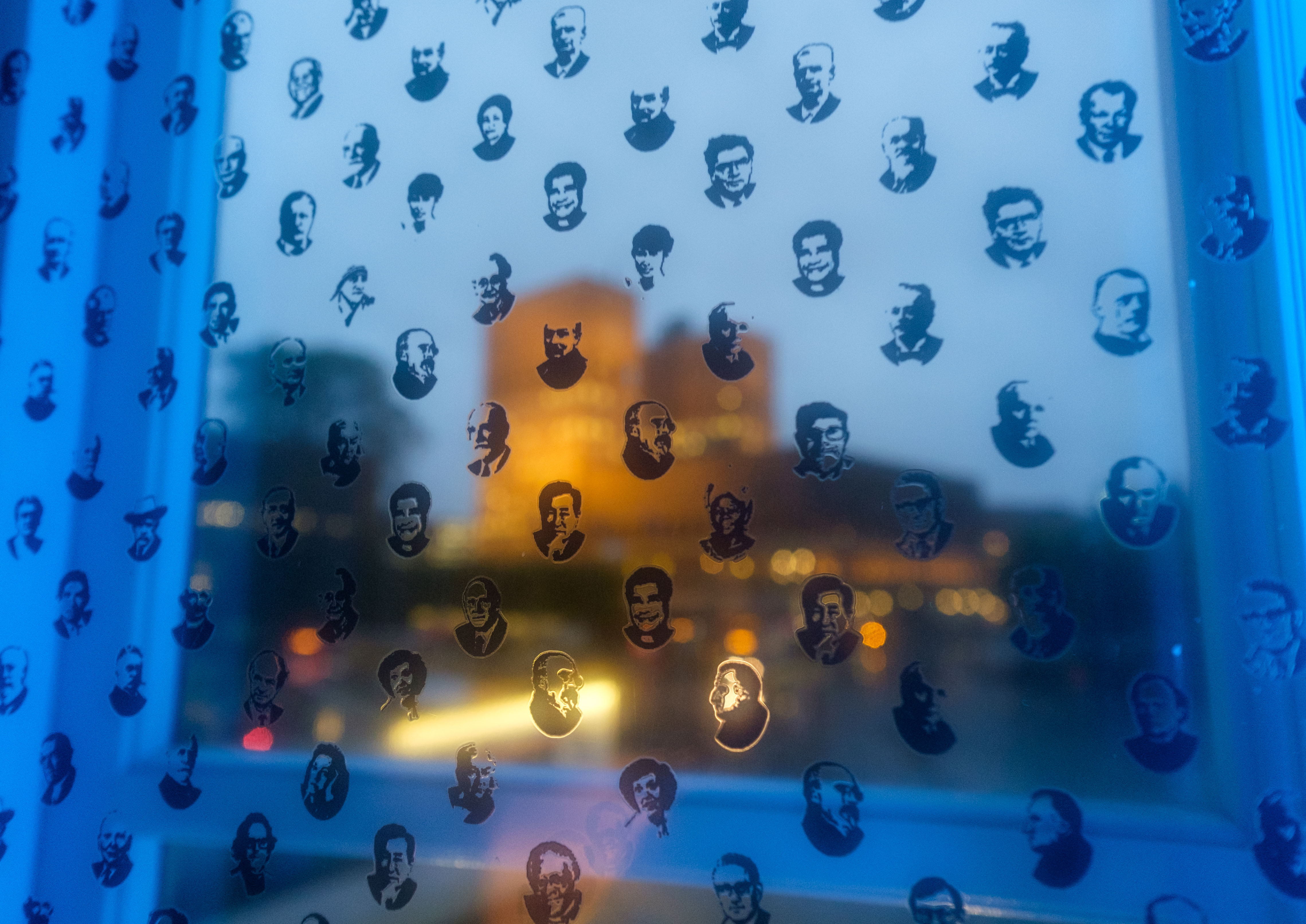Two years before he founded the only local peace prize in the nation, Thomas Heavey '74 was in the middle of a war.
“I was a Coast Guard reservist,” he recalled of his deployment to Kuwait in 2003. “In the desert.”
Heavey — who was elected president of the Sons of Norway in Tacoma just before he left — couldn’t believe he was on the ground at the age of 52 aiding the Iraq invasion, the beginning of an armed conflict that eventually claimed tens of thousands of lives.
“In war there are some pretty tense times, but there’s a lot of time that isn’t,” Heavey said. “So it gives you time for reflection.”
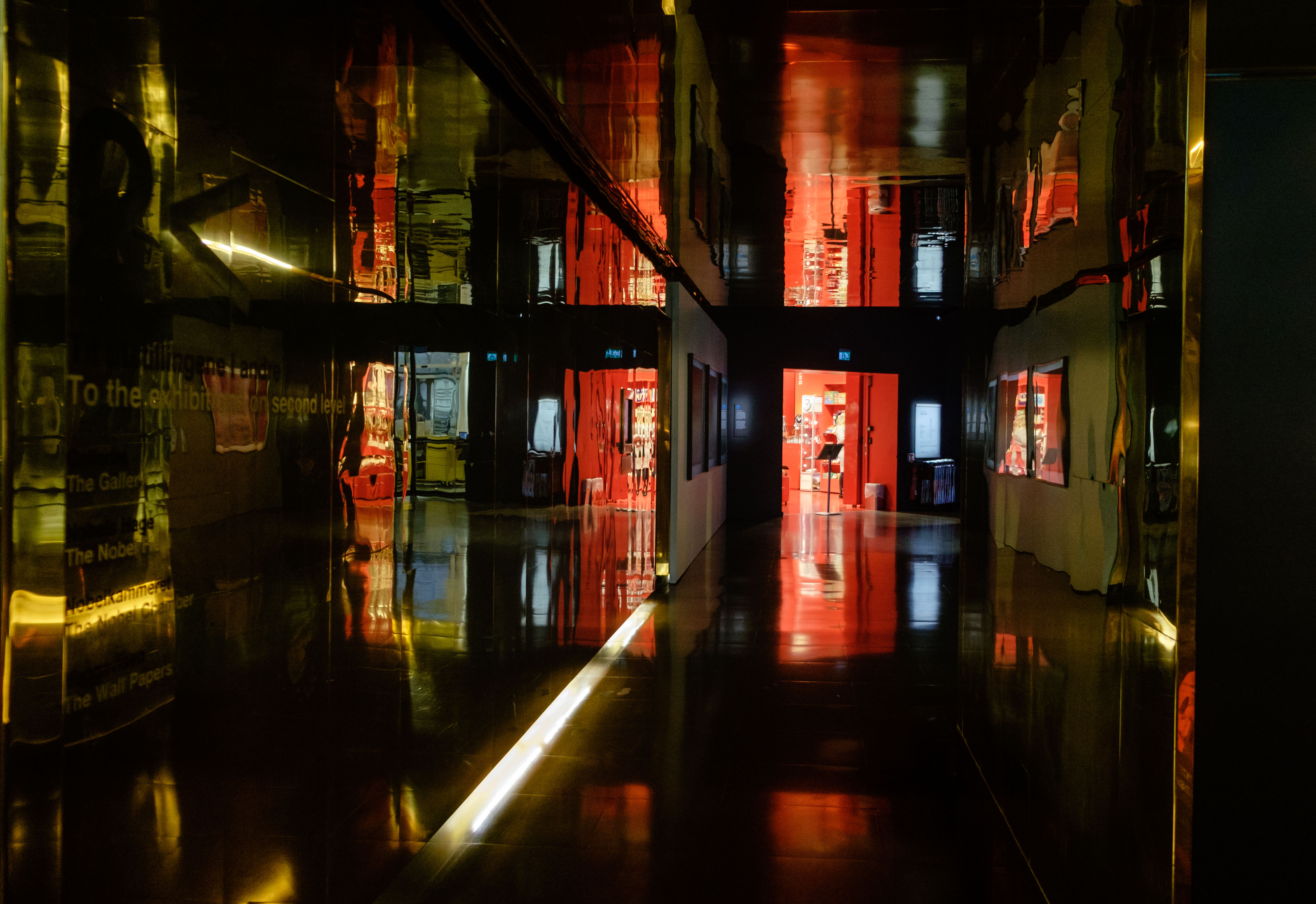
In that time of reflection, Heavey asked himself what modern Norway would have to say to the Norwegians of Tacoma he was then tasked with leading, as well as what Norway would say to the world in the face of immense violence.
“The conclusion you come to is that Norway is the superpower for peace,” he said. “When peace is breaking out in the world, there are Norwegians involved. I left there with the idea that the Norwegians in Tacoma ought to do something about peace.”
That was the catalyst for the Greater Tacoma Peace Prize, an annual award that recognizes local peacemakers from the Tacoma-Pierce County region. Laureates are honored during a ceremony at Pacific Lutheran University each year. They are nominated by their peers and selected by the Greater Tacoma Peace Prize committee, which includes Heavey and a handful of other Lutes.
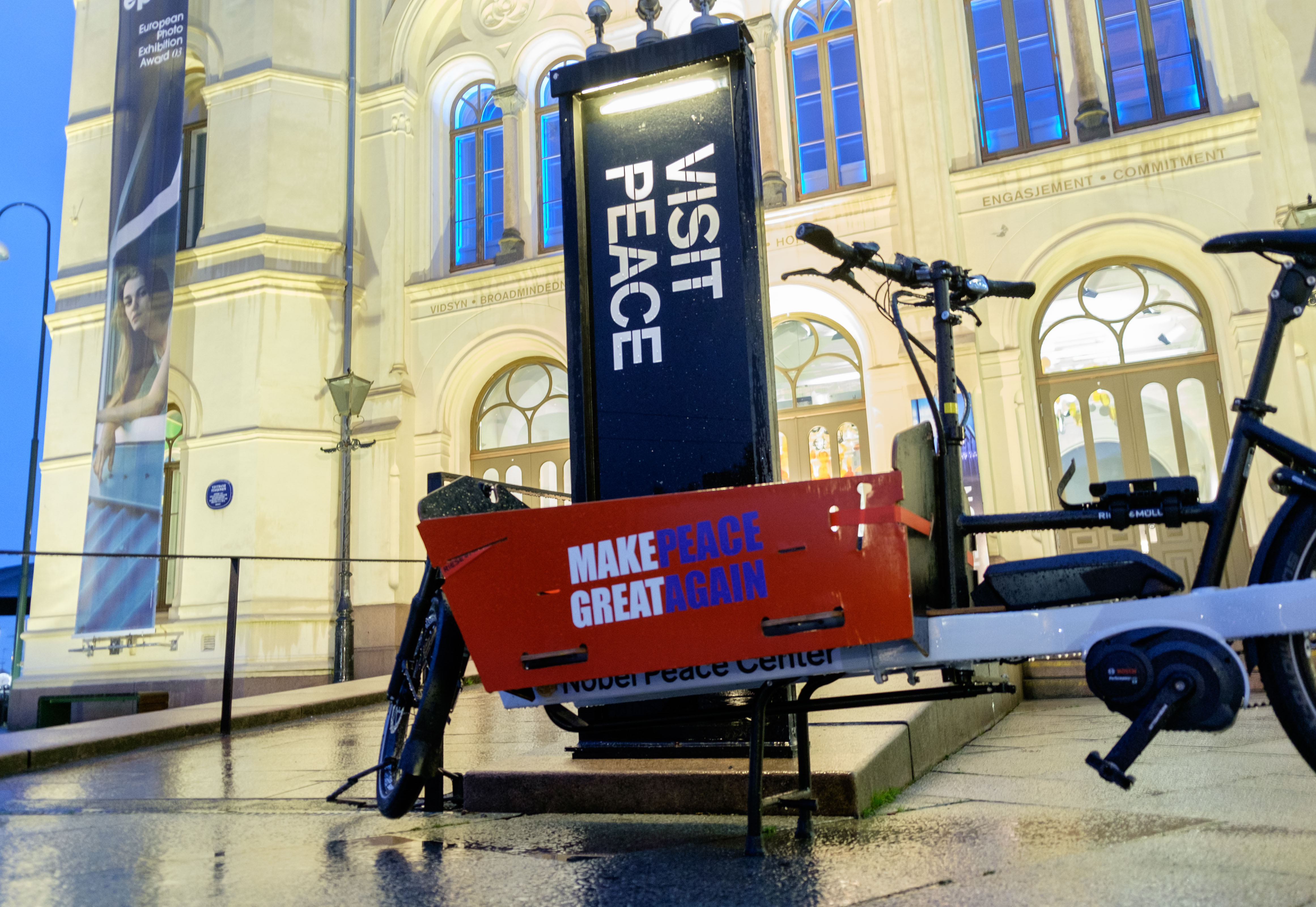
The local prize — believed to be the only one of its kind in the United States — is for everybody, Heavey said, just as the Oslo-based Nobel Peace Prize is for the world.
The 2005 founding of Tacoma’s peace prize coincided with the Puget Sound region’s centennial celebration of Norwegian independence, the anniversary of Norway’s split from its union with Sweden.
The timing was perfect, as the primary groups that comprise the local Norwegian community — PLU at the center — already were deep in discussions about how to honor their heritage. “Tom wanted to have a peace prize that would be considered a gift to the city of Tacoma from the Norwegian-American community here,” said Janet Ruud ’70, president of the organization.
And what a gift it has been. Laureates’ passion projects have included anti-nuclear advocacy, reconciliation, racial and social equity, treating underserved patients around the world and more.
This year’s laureate focuses her work on clean water and sanitation projects in rural Bolivia. Pennye Nixon is founder and director of operations for Etta Projects, an organization created in memory of her daughter, who died when she was 16 in a bus crash in Bolivia just three months into her Rotary International exchange program.
Nixon believes that quality health care and sanitation create peaceful conditions, in which stable communities can progress and grow. “Peace is the opportunity to be kind, show compassion and act to advance equality,” she said.
In addition to a medal, plaque and glass artwork created by the Hilltop Artists in Residence of Tacoma, the local laureates receive a paid trip to Oslo, Norway.
They visit world-renowned humanitarian centers, network with leaders in the peace community and attend events affiliated with the Nobel Peace Prize, including the ceremony, the concert and the live, television interview with the recipient. Oslo, a small but lively city, swells during the Nobel Peace Prize events in December.
“I was amazed at the number of Norwegian institutions that focus all their work on creating, educating, researching, negotiating and advancing peace all over the world,” Nixon said upon returning from her trip. “We had so many good, challenging, honest conversations.”
Many members of the Greater Tacoma Peace Prize say PLU is an obvious ambassador for the organization, Norway and peace itself.

Lisa Ottoson ’87, a committee member of the organization, says her alma mater’s cultural connection is grounded in history; the university was founded by Norwegian immigrant the Rev. Bjug Harstad. Beyond that, she stressed, is the institution’s mission, which focuses heavily on sustainability, care, equity and social justice — all core values in Norwegian society.
“That’s all been a part of PLU,” she said.
Greater Tacoma Peace Prize laureates 2005-present
George F. Russell, Jr.
Russell, the organization’s first laureate, was selected for his work in the realm of peace education, security and peace awareness — on both a regional and global level. His hands-on efforts include support of local gang-intervention work, a pilot program promoting peace through high school curriculum, as well as launching groups focused on resolving the global threat of loose nukes and promotion of government transparency in the former Soviet Union, among other endeavors.
Conflict Resolution, Research and Resource Institute
CRI’s mission is to teach and practice prevention, management and resolution of conflict in the community, nation and world. The mission is carried out using time-tested theories, processes and techniques that ensure equitable, practical and lasting agreements. When the organization was named the 2006 laureate, the nomination cited William Lincoln (CRI executive director) and Polly Davis (associate director) for “doing whatever it takes to restore peace in troubled regions, often accepting the risks without a fee.”
The Rev. Ron Pierre Vignec
Vignec founded the Salishan/Eastside Lutheran Mission in 1985. He was pivotal in revitalizing the Salishan neighborhood in east Tacoma, the largest federal housing project on the West Coast. Vignec’s work helped drop virtually every crime statistic in Salishan, an area once steeped in violence, drugs and prostitution.
David Corner
Corner is the founder and director of The Gathering Project, a humanitarian organization he created in 1997 after traveling to Ghana as part of a mission program there. The Gathering Project has shipped thousands of tons of goods around the world, as well as provided support for programs in North America and the Tacoma area.
The Rev. David T. Alger
Alger served nearly 30 years as executive director of Associated Ministries. His ecumenical work helped bring faith groups together to build a compassionate and just community. He’s been instrumental in the founding and development of many agencies, including Pierce County AIDS Foundation, Pierce County Dispute Resolution Center, Hilltop Action Coalition, and many more.
Kim Ebert-Colella
Ebert-Colella has done peace work in all areas of her life. Among her endeavors, she volunteers at Bryant Montessori School — a racially and socioeconomically diverse school in Tacoma’s Hilltop neighborhood — establishing it as an International Peace Site in 2009. She established and continued to chair the Peace Committee at the school, which has helped raise money for Pennies for Peace, an organization that builds schools in remote regions of Pakistan and Afghanistan.
Dr. Donald Mott
Mott, a retired pediatrician and orthopedic surgeon, was instrumental in the founding of China Partners Network, which works in underserved regions of China to meet the medical needs of children with cerebral palsy and other neuromuscular disorders.
The Rev. William Bichsel
Bichsel is an anti-nuclear activist who was released from prison just before he earned the laureate title. He and four other activists had broken into the Navy’s nuclear submarine base in Bremerton, which houses one of the largest stockpiles of nuclear weapons in the country. Thomas Heavey ’74, founder of the Greater Tacoma Peace Prize, has said he isn’t comfortable with all of Bichsel’s actions. Still, Heavey acknowledges that peace can often mean afflicting the comfortable.
Sallie Shawl
Among many achievements, Shawl founded a local chapter of the international group, Jewish Voice for Peace, which promotes a U.S. foreign policy based on peace, democracy, human rights and respect for international law.
Dawn Olson Lucien and Eric Olson
Local mediator Lucien and Olson, a four-star Navy admiral and peacekeeper, were honored for being formidable advocates for nonviolent solutions to difficult conflicts — locally and internationally — for more than 40 years.
Thomas Dixon
Dixon, regarded as the voice of black Tacoma for more than 30 years, mentored two generations of black civic leaders, serving as a vital force in Tacoma’s 50-year drive for justice and diversity. The organization honored Dixon as its 2015 laureate in conjunction with the 50th anniversary of Martin Luther King’s receipt of the Nobel Peace Prize.
Theresa Pan Hosley
Hosley was nominated for her initiative, persistence and long-term leadership of Tacoma’s Chinese Reconciliation Project Foundation. The organization named her the 2016 laureate to recognize the importance of reconciliation in peacemaking.
Pennye Nixon
Nixon is founder and director of operations for Etta Projects, an organization created in memory of her daughter, who died when she was 16 in a bus crash in Bolivia just three months into her Rotary International exchange program. Nixon believes that quality health care and sanitation create peaceful conditions, in which stable communities can progress and grow.
To be determined
The organization is now accepting nominations for the 2018 Greater Tacoma Peace Prize. The deadline to nominate is March 31, 2018. Visit tacomapeaceprize.org for the nomination form and guidelines.
Ruud agreed, adding that PLU’s commitment to service mirrors the commitment of people in Norway, who are taught from birth that giving back is their standard way of life.
“The whole idea of educating for lives of service,” Ruud said. “It’s just part of Norway’s character.”
Lisa Ottoson ’87, a committee member of the organization, says her alma mater’s cultural connection is grounded in history; the university was founded by Norwegian immigrant the Rev. Bjug Harstad. Beyond that, she stressed, is the institution’s mission, which focuses heavily on sustainability, care, equity and social justice — all core values in Norwegian society.
“That’s all been a part of PLU,” she said.
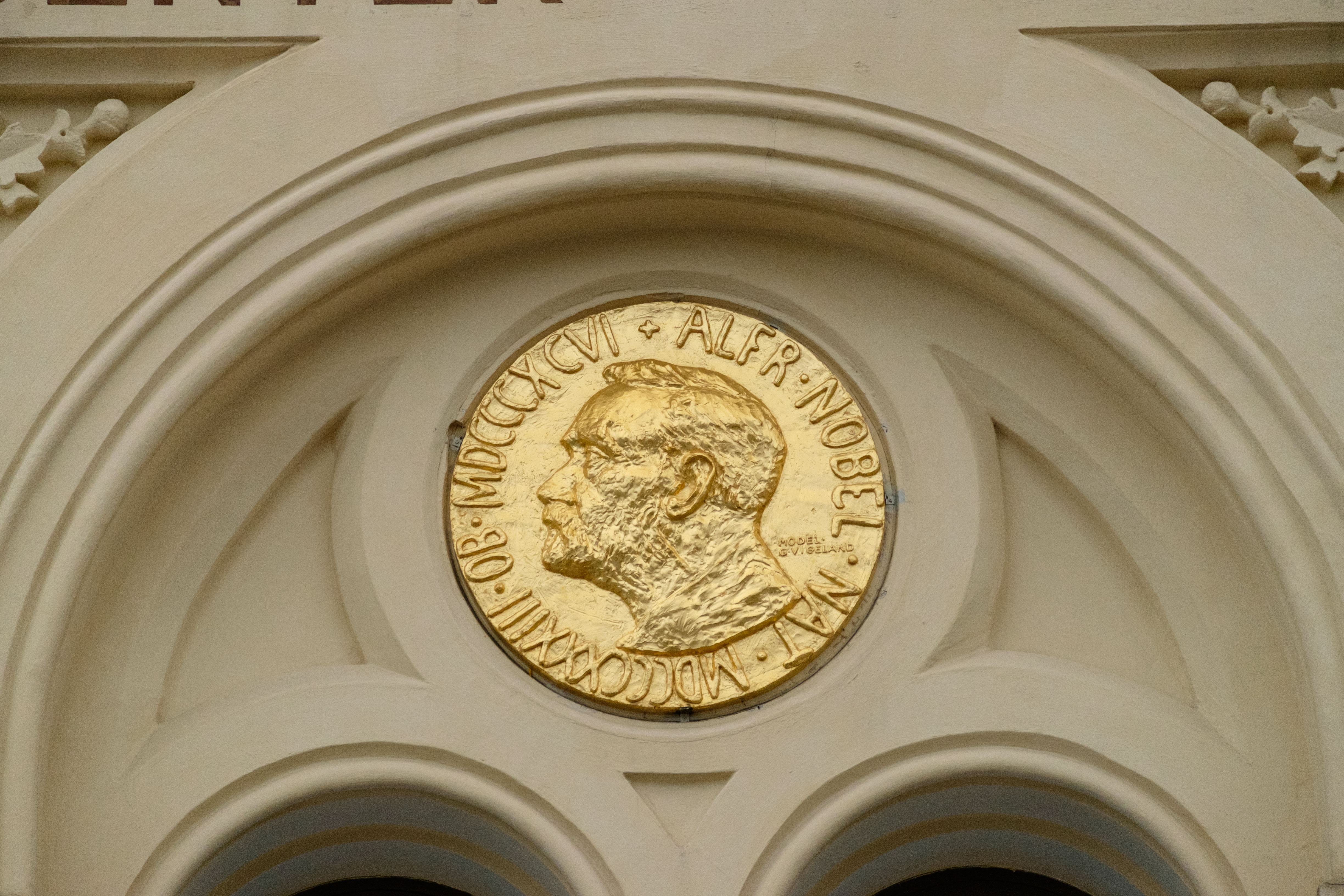
Hedda Langemyr, director of the Oslo-based Norwegian Peace Council, says peace is a part of the fabric of Norway.
“Our society is built on openness, trust, and nice and good relations,” Langemyr said on a cold Oslo afternoon in the city center. “It’s this collective identity that we’re a nation with solidarity toward less fortunate countries. There’s a lot of goodwill and a lot of good intentions.”
Still, she noted that Norway — as with the rest of the world — is taking a close look at what it means to be peaceful and how peace is employed.
“Norway is in a position to influence and to actively take part in diplomacy and disarmament issues,” she said.
Langemyr is working to build a security think tank to connect military researchers, humanitarian organizations, politicians, journalists and many other stakeholders interested in peace work and security issues. She stressed that peace is about building bridges, and the only way to do that is with intentional, constructive dialogue: as a tool for understanding, not necessarily for pursuit of agreement.
“I think the notion of what peace is will be different from person to person,” she said. “For me it has to do a lot with discourse. It has a lot to do with creating space, where people can fight their prejudices, fight their enemies and have decent, well-intended and sober conversations about important issues and important matters.”
Hanne Aaberg says Norwegians aren’t afraid of discourse. She serves as secretary general of Norwegians Worldwide, a 110-year-old organization tasked with building and maintaining a global network of Norwegians; the organization hosts the Greater Tacoma Peace Prize laureate each year.
She stressed that without peace, freedom is impossible. “When there’s no peace, you can’t do anything,” she said, from an office overlooking the Oslo waterfront. “I think a country that has been occupied, that never really leaves you.”
It’s one reason she’s grateful to learn about the difficult and meaningful work done by Tacoma’s laureates. “We learned so much from all of them,” she said. “I think it’s very inspiring to have them here and maybe it should inspire us in Norway to think of a better way to honor people who do this (work). This is really something.”
Defining peace is an ongoing effort, Ruud and others at the Greater Tacoma Peace Prize say. “We haven’t defined it yet,” Ruud said.
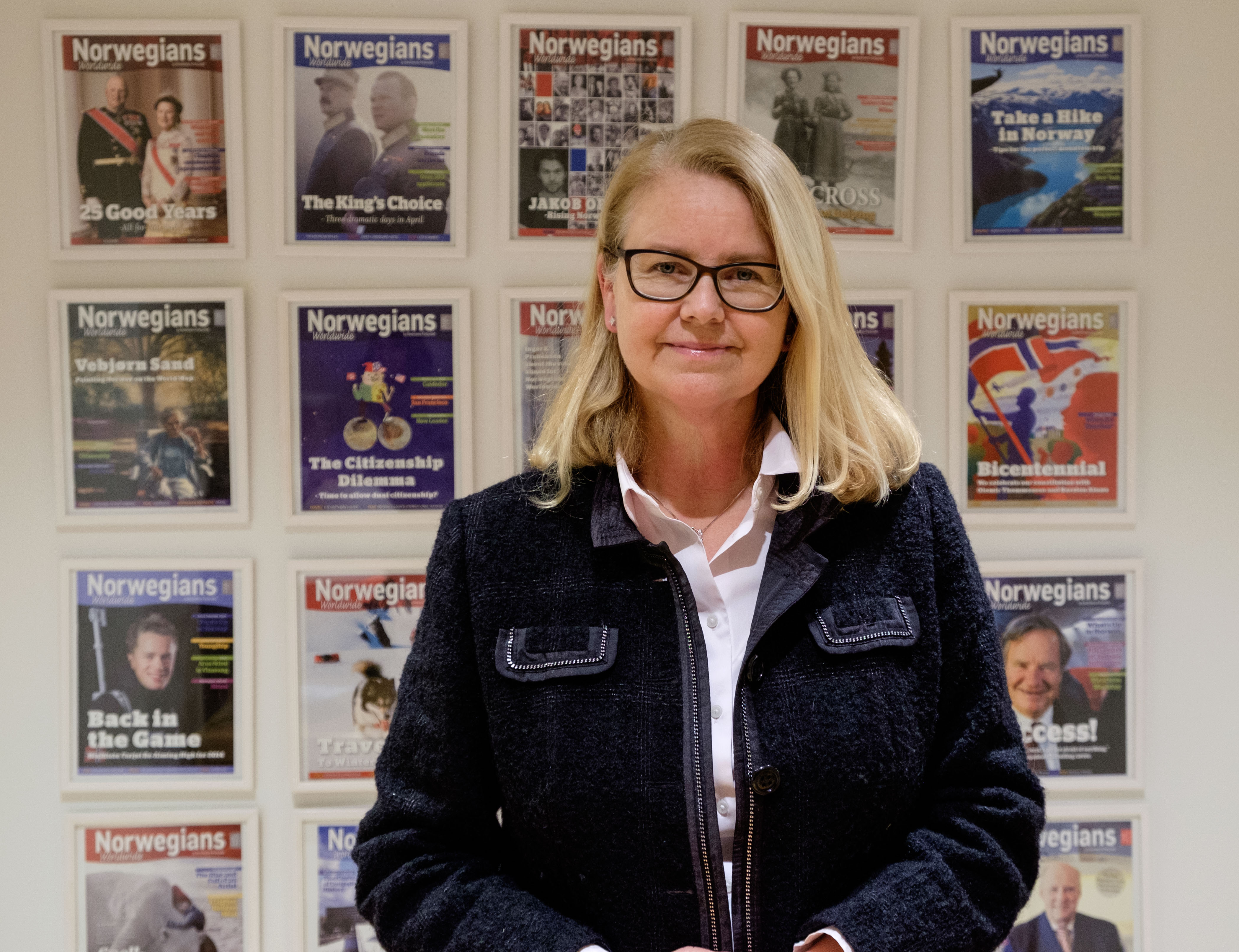
Heavey says peace is multifaceted — from civil rights leaders to the local PTA advocating for a non-confrontational disciplinary system in elementary schools.
“Whether you’re a rich man who is able to use his influence in dollars, or a poor person who goes out and speaks truth to power,” he said, “you’re bringing peace to your community.”
And with the exchange that happens on their travels to Oslo, those diverse peacemakers expand their footprint globally.
“Whether you’re a rich man who is able to use his influence in dollars, or a poor person who goes out and speaks truth to power, you’re bringing peace to your community,” Thomas Heavey ’74 said.
Ottoson said traveling there is a key component of the prize, to build laureates’ networks. Still, the visibility back home surrounding their work is most inspiring.
Preceding a standing ovation during the fall ceremony honoring her, Nixon ended her acceptance speech with a quote from Pericles: “What you leave behind is not what is engraved in stone monuments, but what is woven into the lives of others.”
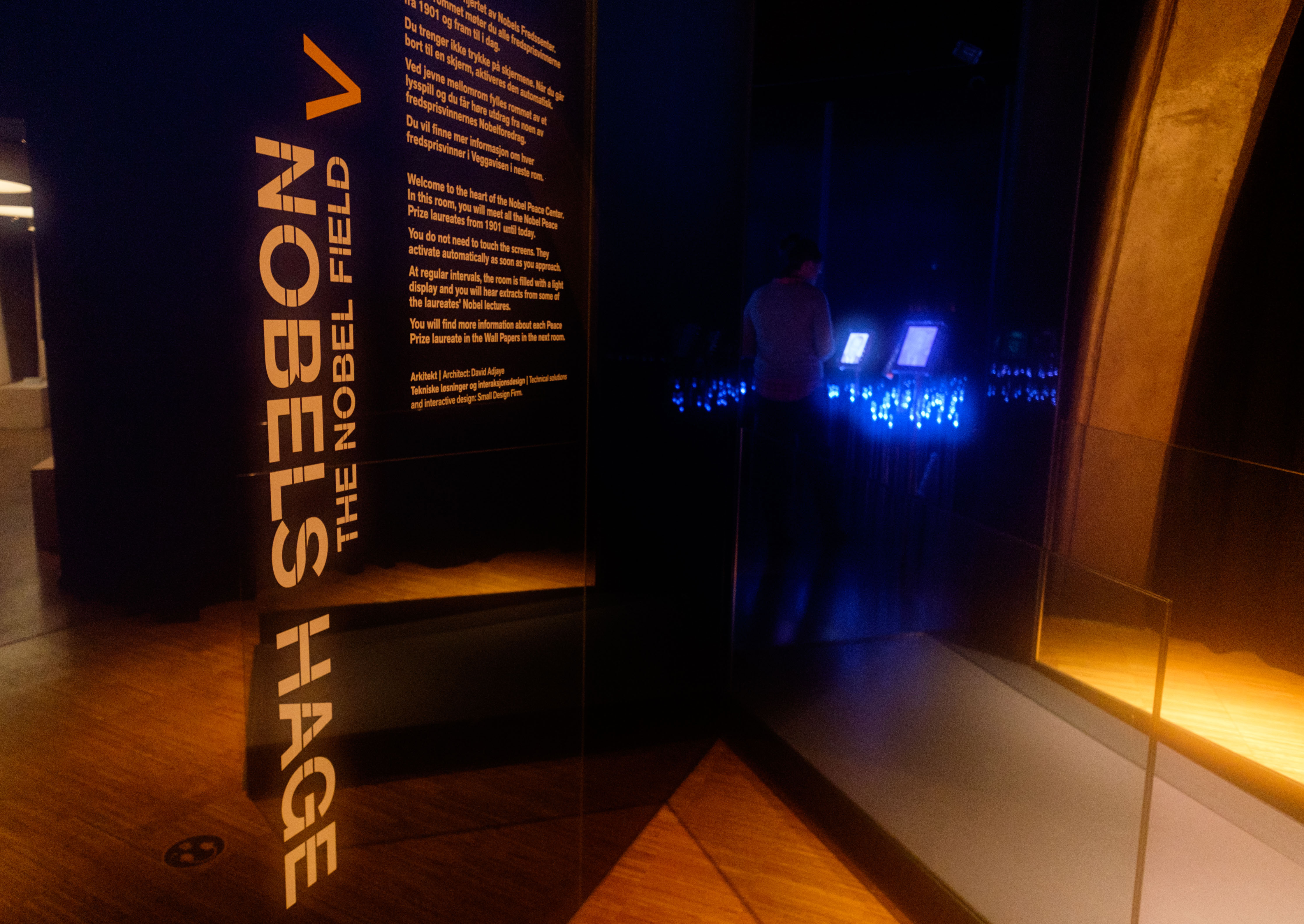
Nixon says the Greater Tacoma Peace Prize wasn’t for her, it was for everyone at Etta Projects. And for the world.
Ottoson said that shows her community how powerful the prize is, here and beyond.
“I’m unlikely to meet Malala (Yousafzai). I’m unlikely to meet Obama,” Ottoson said of two well-known Nobel Peace Prize recipients. “But these are now 13 people in my community that we’ve honored, which I think is spectacular.”
While the 13 laureates have made a clear difference in their community, Ottoson says there is still more work to be done — possibly more than ever before.
“I’m unlikely to meet Malala (Yousafzai). I’m unlikely to meet Obama,” Lisa Ottoson ’87 said. “But these are now 13 people in my community that we’ve honored, which I think is spectacular.”
“Its existence is even more important in today’s world than it was in 2005 when it started,” she said of the prize. “It should be held up more significantly.”
